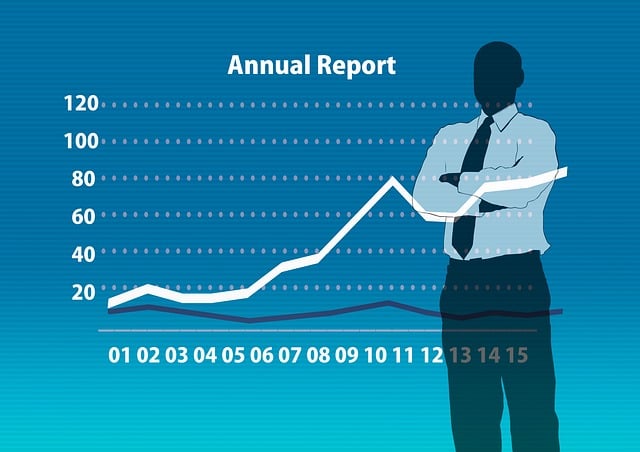Translation services for UK Public Health Reports play a critical role in ensuring effective communication within healthcare environments by accurately conveying nuanced cultural insights and specialized terminologies across language barriers. These expert translators navigate complex public health data, enabling diverse linguistic and cultural communities to access and understand critical health information, which is essential for informed decision-making and the successful implementation of public health strategies. As globalization continues to expand, the importance of these translation services grows, facilitating the dissemination of public health messages effectively, enhancing health awareness, and promoting equitable access to vital information. This leads to more tailored interventions and aids in meeting public health goals, ultimately contributing to better population health outcomes within the UK.
navigating the complexities of health communication within diverse communities, the pivotal role of translation services in UK public health reporting has become increasingly apparent. This article delves into the effectiveness of these services, highlighting the intricate balance between linguistic precision and audience accessibility. We explore the nuanced contributions of language professionals in disseminating critical public health data, overcoming linguistic barriers, and setting benchmarks for best practices in translation. Through a case study and informed insights, we provide a comprehensive overview of how these translations shape the dissemination of public health information across the UK’s multicultural landscape.
- Assessing the Efficacy of Translation Services in UK Public Health Reports
- The Role of Language Professionals in Communicating Public Health Data to Diverse Audiences
- Overcoming Linguistic Barriers: A Case Study of Translation Practices in UK Public Health Reporting
- Best Practices for Ensuring Accurate and Accessible Translations in UK Public Health Contexts
Assessing the Efficacy of Translation Services in UK Public Health Reports

The translation of UK public health reports into languages accessible to diverse populations is a critical function that can significantly impact the effectiveness of public health interventions. The efficacy of translation services in this domain hinges on their ability to accurately convey complex medical and statistical information, ensuring that the content maintains its integrity and relevance across different linguistic communities. High-quality translations enable clear communication of health risks, preventive measures, and guidelines, which is paramount for effective public health strategies. Moreover, these services must navigate cultural nuances and idioms to provide translations that are not only linguistically accurate but also contextually appropriate. This requires a specialized workforce with expert knowledge in both public health and the languages involved, as well as adherence to industry standards like ISO 17100 for medical translations. The performance of translation services is a pivotal aspect of public health report dissemination in the UK, influencing the comprehension and actionability of critical health information by non-English speaking populations, thereby playing an integral role in the overall public health outcomes.
The Role of Language Professionals in Communicating Public Health Data to Diverse Audiences

The intersection of public health and language proficiency is a critical area that underscores the importance of clear communication in healthcare settings, particularly within the UK. Language professionals play a pivotal role in ensuring that public health reports are accessible to diverse populations, transcending linguistic barriers and facilitating understanding across communities. The translation services for UK Public Health Reports are not merely about converting text from one language to another; they encompass cultural nuances and context-specific terminologies that are fundamental to the subject matter. These professionals are adept at interpreting complex public health data and presenting it in a manner that is both accurate and comprehensible, regardless of the recipient’s linguistic background. This process is essential for effective public health strategy implementation, as it enables informed decision-making and empowers individuals from various cultural and linguistic groups to make health choices that benefit them and their communities.
In today’s globalized society, where migration and international collaboration are the norms, the role of professional translation services in the realm of UK Public Health Reports is more significant than ever. These experts ensure that public health messages are effectively communicated, thereby promoting health awareness, prevention strategies, and interventions that are tailored to meet the needs of all segments of the population. The use of specialized translation services is a key factor in bridging gaps in health literacy and fostering equitable access to health information, which is indispensable for achieving public health objectives and improving overall population health outcomes in the UK.
Overcoming Linguistic Barriers: A Case Study of Translation Practices in UK Public Health Reporting

UK public health reporting faces unique challenges, one of which is overcoming linguistic barriers to ensure that information is accessible and comprehensible to all individuals within diverse communities. The effectiveness of UK public health reports hinges on clear communication, which includes the provision of accurate and culturally relevant translations for non-native speakers. Translation services for UK Public Health Reports are pivotal in this context, bridging language gaps that could otherwise impede the dissemination of critical health information. A case study examining these translation practices reveals a systematic approach to content localization, where terminology is vetted with public health experts and translators work in tandem with cultural consultants to maintain the integrity of the original message while adapting it to the linguistic and cultural context of the target audience. This collaborative effort not only enhances understanding but also fosters trust in the information provided, which is crucial for public health interventions that rely on widespread awareness and compliance. By implementing robust translation services, UK public health entities can ensure that their reports reach a broader audience without compromising on accuracy or effectiveness, thereby contributing to more informed health decisions across diverse populations.
Best Practices for Ensuring Accurate and Accessible Translations in UK Public Health Contexts

When addressing the needs of diverse communities within the UK public health context, the provision of accurate and accessible translations is paramount. Translation services for UK Public Health Reports must adhere to stringent best practices to ensure clarity and reliability. Firstly, it is essential that translators are not only proficient in both the source and target languages but also well-versed in public health terminology and cultural nuances. This expertise ensures that the scientific content of public health reports is accurately conveyed, maintaining the integrity of the original message while making it comprehensible to non-English speaking populations. Additionally, leveraging translation management systems (TMS) can streamline the translation process, ensuring consistency across multiple documents and formats. These systems also facilitate quality control checks, which are crucial for catching errors that could compromise the effectiveness of health communication strategies. Furthermore, involving native speakers in the review process helps to authenticate translations and ascertain that the context remains appropriate for the intended audience. By implementing these best practices, translation services can significantly enhance the accessibility and accuracy of UK Public Health Reports, thereby supporting equitable health outcomes for all communities within the UK.
In conclusion, the efficacy of translation services for UK Public Health Reports is a multifaceted issue that plays a pivotal role in the dissemination and understanding of critical health information. Language professionals are at the forefront of this endeavor, ensuring that public health data reaches diverse audiences with clarity and precision. The case study on translation practices underscores the importance of adhering to best practices, which not only facilitate accurate translations but also make them accessible to a wide range of readers. By implementing these strategies, UK public health entities can enhance the effectiveness of their reports, thereby contributing to better health outcomes for all communities within the UK. This comprehensive examination highlights the necessity for robust translation services and underscores the critical role they play in supporting informed decision-making across the nation.
